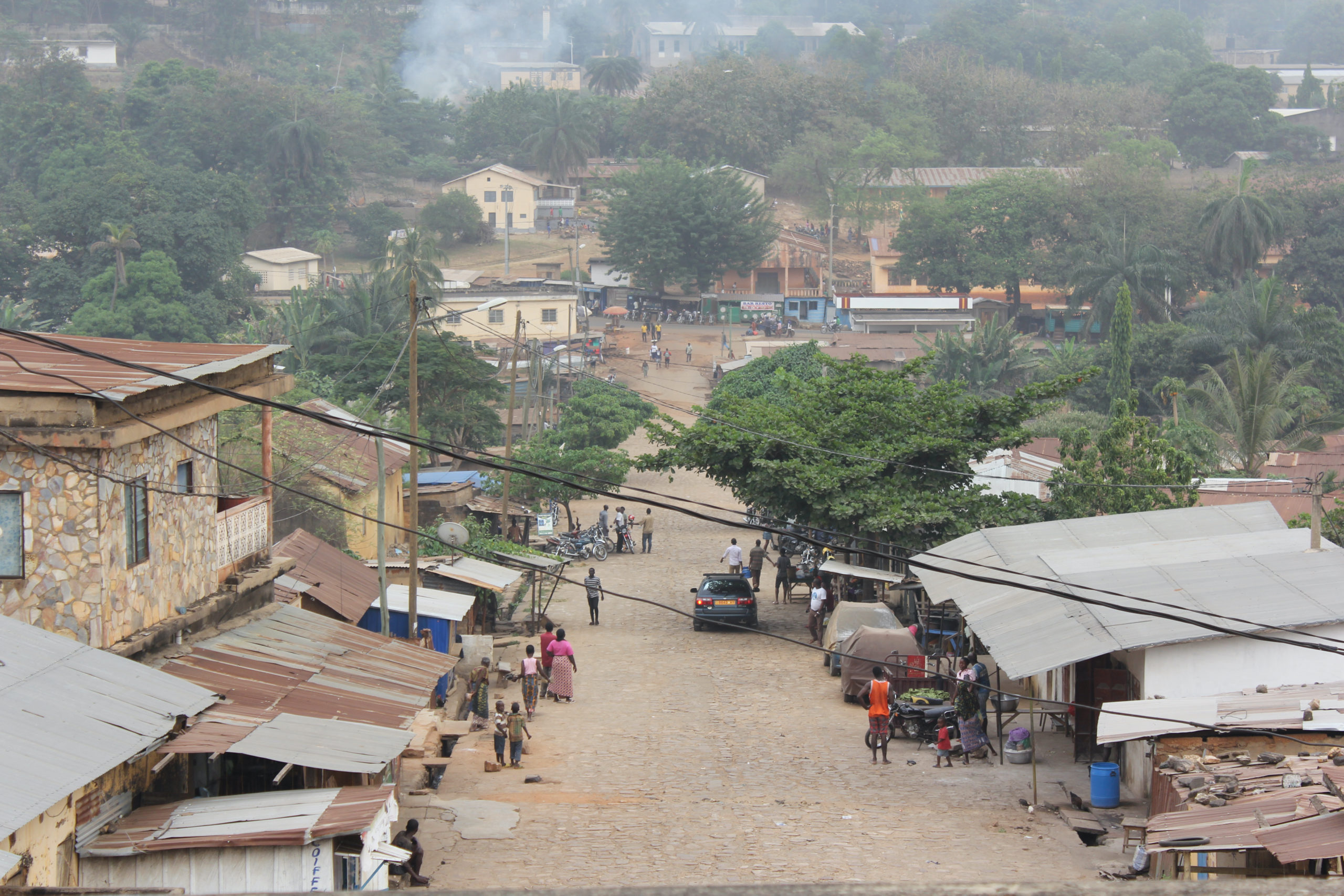The time he spent with the Bible had a profound effect on Komi’s life. ‘Translating the New Testament really deepened my faith,’ Komi says. ‘And it is the same today. I still discover the Bible every day.’
‘The number of Christians and churches has grown hugely’
The work of the Ifè team has enabled many more people to also discover the Bible. ‘The biggest impact the New Testament has had,’ Komi says, ‘is that the number of Christians and churches has grown hugely because people can understand the word of God in their language.’
Before the Ifè translation started there weren’t many churches. ‘But now,’ Komi notes, ‘almost every Ifè village has a church.’ But having the New Testament isn’t enough. The Ifè people also want to be able to read the Old Testament, which is 70% of the Bible, in their language. ‘People are hungry to have the Old Testament,’ Komi says. ‘They long for the whole Bible.’
‘I give thanks to the Lord’
After Mary’s death, God opened the door for Komi to continue the training he and Mary had been planning. ‘I give thanks to the Lord because I was able to finish my training,’ Komi explains. ‘And then I was able to go to Israel for six months to do the same training course that Mary was doing when she was killed. When I came back we recruited three new translators and I trained them, and then we started the Old Testament translation into Ifè.’
Komi’s work has now expanded beyond the Ifè translation. ‘I also help other translation teams to check the accuracy of their translations,’ Komi explains. He also now coordinates the work of Bible translation across Togo and neighbouring Benin.
Recently Komi has been back in Atakpamé, checking the draft translation of Leviticus with his brothers and sisters on the Ifè team.
Given the animist background of so many Ifè people, Komi says that this book will be ‘really, really helpful for the Ifè community’ because of its teaching around sacrifices and idols.
‘It is wonderful,’ Komi smiles, ‘to see how Mary’s plans for the Old Testament translation are now in the process of being completed.’
‘Translating the Bible is so important’
The Ifè team aims to complete their full Bible translation by 2026. But Komi’s work coordinating translation across Togo and Benin enables him to see even more deeply the difference Bible translation makes – and the need for more translation projects to start.
‘Translating the Bible is so important,’ Komi concludes, ‘because many people don’t understand French, so they are not able to read and understand the Scriptures. And it does not change their lives when they do not understand it. Translation of the Bible also enables nonbelievers to hear the good news in their language.
‘Everywhere that I go people say: “Thank you for the work that you do because it allows us to have God’s word in our language.” But those who don’t yet have a translation ask me, “What about us? When will we have our translation?”’
The goal of everyone on the global Bible translation team – people like you who give and pray so that Bible translation can happen, and people like Komi and the Ifè team who do the day-by-day work of translation – is that soon there will come a time when everyone will know the joy that comes from having the whole Bible in their language.






